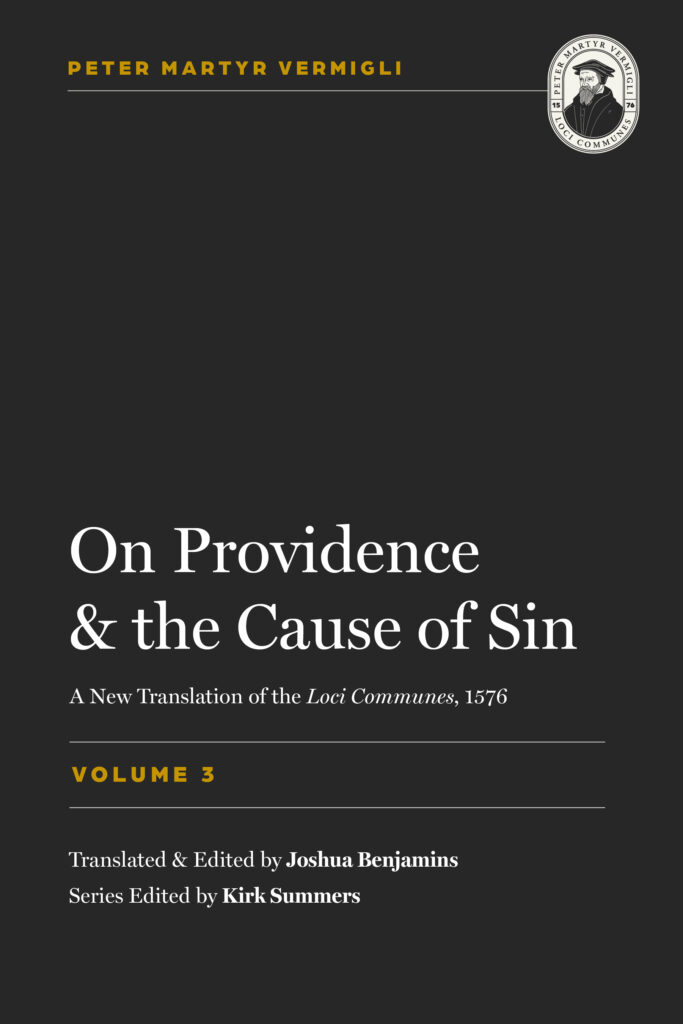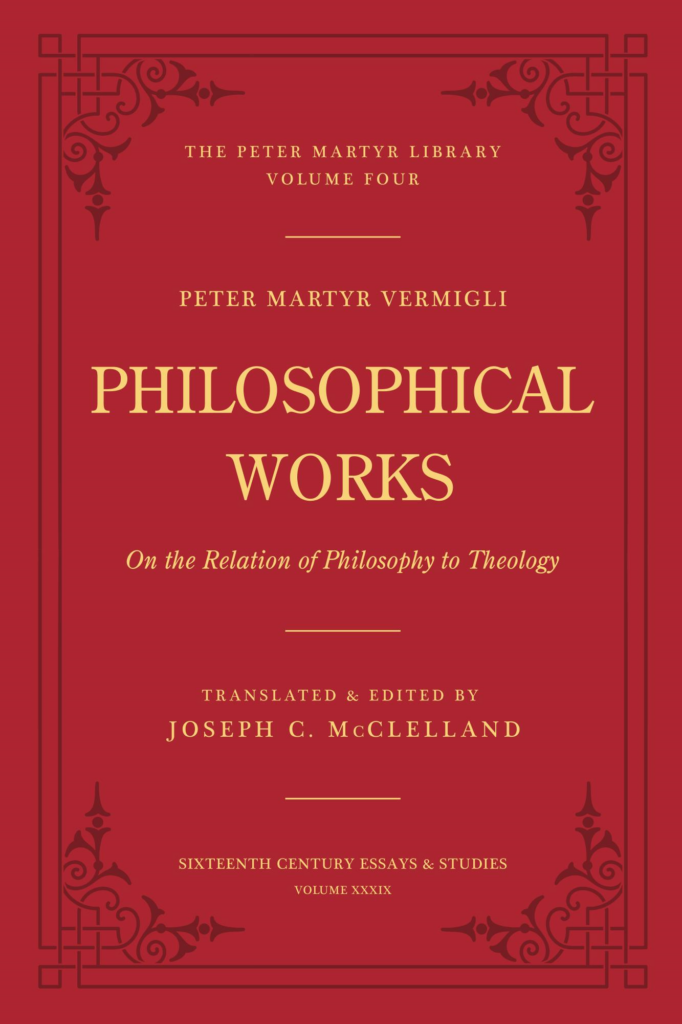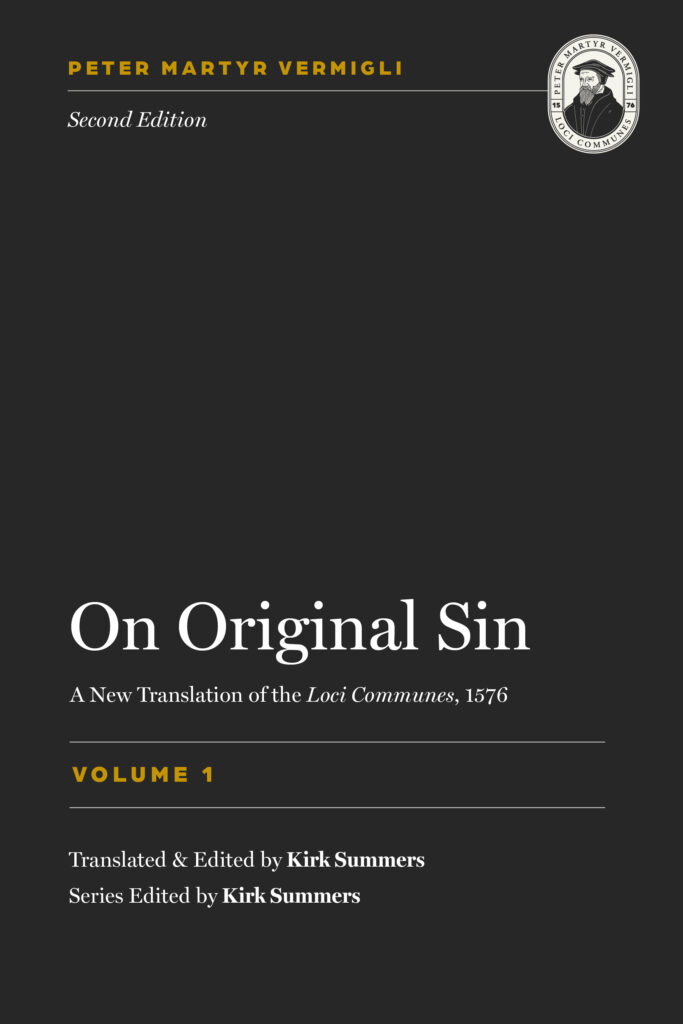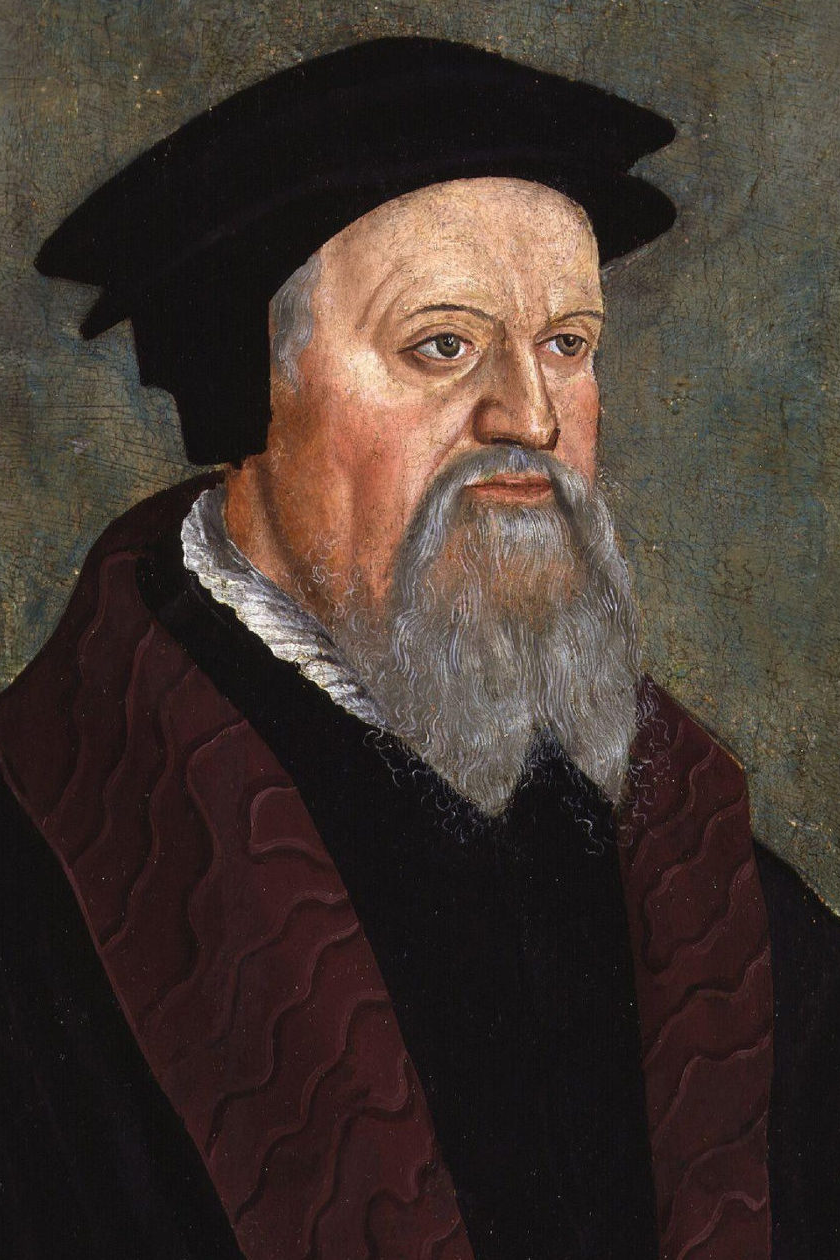This article is a lightly edited extract from the editor’s introduction to On Providence and the Cause of Sin (Davenant Press, 2024) by Peter Martyr Vermigli, vol. 3 in the Davenant Press’s ongoing translation of Vermigli’s Loci Communes.
Defining Providence
In good scholastic fashion, Peter Martyr Vermigli begins his discussion of providence in On Providence and the Cause of Sin with a definition: providence is “the system [ratio] which God uses in directing things toward their proper ends” (13 section 1). A little later, he offers a similar definition: “a power or faculty of God by which he directs all things and conducts them to their proper ends” (13 section 7). Both formulations recall Aquinas’s definition of providence as “the relation [ratio] of things ordered toward their end” which preexists in the divine mind.1 Etymologically, the Latin term providentia suggests seeing something before it happens, and in this sense it can be synonymous with foreknowledge. Alternatively, as Mikko Posti notes, a distinction could be made between the prefixes pro- and prae-, such that the latter means foreknowledge and the former carries a causal connotation (to see on behalf of something).2 For Vermigli, providence entails much more than simply advance knowledge. It is crucial for his analysis that providence is a species in the genus of power (see the second definition above). Providence thus includes not only knowledge but also God’s effectual will in fixing events, together with the power to direct and govern all things (13 sections 1, 5, 7). Insofar as providence comes under God’s will and knowledge, both of which pertain to his essence, it is immutable (13 section 12). If providence includes will and power, it is wrong to construe it as mere foreknowledge, as though God simply brings things to the point where human beings can choose or reject them (13 section 15). Foreknowledge, Vermigli argues, is preceded by will: “God is able to foreknow only those future things which are going to take place” (14 section 32).
Vermigli’s doctrine of providence is closely connected to and flows from his doctrine of creation. God not only brings things into being, but also sustains, governs, and directs all things once they have been created: without the operation of his providence, they would collapse (13 section 7). Anything that escaped providence would ipso facto be outside creation as well (13 section 8). As Silvianne Aspray comments, “it is therefore the doctrine of creation which leads Peter Martyr to stress the unity of God’s providential workings in the world.”3 God does not sit idly in a watchtower giving loose reins to the world (14 section 41). Vermigli consequently rejects the theory that God’s “guidance merely consists in his supplying a common influence to all things, which individual things draw to themselves” (13 section 7).
Vermigli’s explication of God’s providence focuses largely on two problems, which the following sections will consider in some detail. They are, respectively, the relationship that providence bears to fate, chance, and contingency, and the sense in which God is to be considered the cause of evil, particularly sin. The strategies Vermigli uses to solve these notoriously knotty problems reflect his deep familiarity with the ancient and medieval philosophical tradition in its full breadth.
Fate, Chance, Contingency, and Providence
The first major issue which Vermigli confronts in these chapters is the way in which divine providence relates to fate, chance or fortune, and contingency. In brief, if God’s will functions as the essential cause of all existing things, is any room left for chance events? If God foreordains everything that comes to pass, what space remains for contingency in the affairs of the world? Do secondary causes have any genuine function? These questions played a crucial role in both ancient and medieval discussions of providence, and Vermigli avails himself of a long lineage of theoretical reflection on such issues, Christian as well as non-Christian. To appreciate his intervention, it will be useful to briefly survey the theories of providence offered by Aristotle and later Peripatetics, the Stoics, the Neoplatonists, Augustine, and Thomas Aquinas, who together represent the major interlocutors and influences for Vermigli’s own teaching.
While most interpreters do not find in Aristotle (384–322 BC) the idea of a God who exercises personal, providential care, Aristotle does speak of a First Cause, or unmoved mover, who is responsible for the universe’s order.4 This God is pure act, simple and immutable. Although Aristotle lacks a doctrine of personal providence, the theory of chance and accidental causality that he articulated exercised a great influence on Christian theology from the Middle Ages onward. Aristotle discusses chance (τύχη) in Physics 11.4–6, where he construes it as an accidental (per accidens), as opposed to an essential (per se), cause of events. For Aristotle, there are genuinely chance events in the world that lack a per se cause. He gives the example of a man who goes to the market with some other purpose in view, but ends up collecting a debt by luck. This acknowledgement of chance events crucially enables Aristotelian natural philosophy to avoid falling into determinism. Accidental causation, in Aristotle’s theory, “follows from the fact that most causes do not always cause their proper effects but only do so in most cases.”5
The Peripatetic school founded by Aristotle sought to clarify the Philosopher’s doctrine of providence. The early Peripatetics were generally of the opinion that divine providence only applies to the spheres above the moon, while the sublunary realm is devoid of intentional providential control. However, in the third century AD, the Peripatetic philosopher Alexander of Aphrodisias, in a treatise entitled On Fate, argued that divine providence operates through the mediation of the heavenly bodies and through them extends to the sublunary world. For Alexander, providence is not concerned with individual beings but only with the continued existence of sublunary species of beings. This stipulation was intended to solve the problem of “how the divine can attend simultaneously to a multiplicity of details and over the injustices suffered by some particular individuals.”6 Alexander’s Aristotelian doctrine of providence, which conceived of divine providence exclusively as a final cause rather than an efficient cause, was transmitted to the Western world through Averroes and was taught in the universities.7
In contrast to Aristotle and the Peripatetics, the Stoics embraced causal determinism: all events are connected in an unbroken chain of causes. The Stoics equated this series of causes with “fate” (εἱμαρμένη) and also with providence: everything that happens according to fate also happens according to providence, since the immanent power of God—conceived by the Stoics as a craftsmanlike fire—infuses all of material reality. For the Stoics, the existence of fate was confirmed by the obvious organic unity of the world as well as the success of divination. Their deterministic picture left no room for contingent or chance events: everything that happens in the world is predetermined. Nevertheless, the Stoics also held to the compatibilist position that human will can be reconciled with causal determinism. Even though human choices and behaviors are causally determined, this is compatible with our actions being “up to us” (ἐφ’ ἡμῖν), since they are determined by our own perceptions and ensuing choices. As Posti notes, the Stoic position was routinely criticized in the Middle Ages for its determinism, yet it “remained highly influential as the shared enemy of the Platonist and Peripatetic schools.”8
The Neoplatonists rejected both the Peripatetic theory, which denied any providence over individuals, and the Stoic theory, which equated providence with an ineluctably fated chain of causes. They worried that each of these views would undermine human freedom and moral responsibility. Plotinus (204/5–270 AD), the founder of Neoplatonism, equated providence with Intellect, the emanation from the One. He widened its purview to include all sublunary things, including the actions of rational agents, and extended it to miniscule details of the world, which the Peripatetics had excluded from divine knowledge.9 Proclus (412–485 AD), a long-time head of Plato’s Athenian Academy, drew a distinction between fate and providence: providence (πρόνοια) is divine, the benevolent activity of the First Principle, while fate (εἱμαρμένη), which depends on providence, is confined to natural and physical things. The Neoplatonic theory profoundly shaped the thought of both Augustine and Boethius, two of the most influential expositors of providence for the medieval period.
Augustine of Hippo (354–430 AD) wrestled throughout his writings with questions concerning providence, free will, and the cause of evil. He maintained the Christian (and Platonist) conviction that God is good, but also stressed God’s omnipotence and the absence of any weakness or imperfection in the supreme Being. For Augustine, nothing in the natural world can lie outside of the order of providence. In Book 5 of City of God, he denies that anything happens by fate. He grants that there is a fixed sequence of causes in God (which is only improperly called “fate”), yet holds that human will is not meaningless on that account, since the will is itself contained in the sequence of causes that God has determined. Augustine also refutes Cicero’s arguments against God’s foreknowledge of future events, based on the premise that divine foreknowledge cannot be reconciled with human freedom.10 Even though all events are foreknown by God, human volitions are efficient causes of human actions. Augustine thus maintains the genuine character of free will alongside the authenticity of God’s foreknowledge and sovereignty. As he rejected fate as an independent causal agent, Augustine also rejected chance, viewing it as a threat to God’s all-embracing providential government: “Whatever happens by chance happens without design. Whatever happens without design does not happen due to Providence. If therefore some things in the world happen by chance, then not all the world is governed by Providence.”11
Thomas Aquinas (1225–1274 AD) addressed the interlocking issues of fate, chance, fortune, and providence in numerous places. Like the Neoplatonists and Augustine, he maintains the radical, unceasing dependence of all created things on God as the supreme cause, and affirms that all things without exception are subject to God’s providence. Also like Augustine, Aquinas understands providence to be the execution in time of God’s intellectual cognition of order. In line with Augustine’s critique of the concept of fate, Aquinas “prefers to speak of the execution of providence as governance (gubernatio) rather than fate” and “is reluctant to admit the existence of fate, understood as a cause, in any other sense than the will and power of God.”12 However, Aquinas also affirms the real existence of secondary causes in the world, and holds that not all of these causes bear a necessary connection to their effects. Some per se causes do not produce their effects in all cases, and chance events transpire when a per se cause issues in something other than the typical outcome. Events of this sort do not have a proper per se cause, but merely an accidental cause. Thus, Aquinas follows Aristotle in defining chance and fortune “as causes that create their effects beyond the intention of agents acting towards an end.”13 This account of chance events enables Aquinas, like Aristotle, to avoid causal determinism. For Aquinas, secondary causes are responsible for the contingent character of certain events that are produced by the joint operation of God and his creatures. Scholars have referred to Aquinas’s doctrine as “providential determinism”—the view that “the effects of all the lower causes, including the actions of human free will, are predetermined from the viewpoint of the infallible divine providence.”14
Vermigli seeks to untangle the nexus of fortune, fate, providence, and contingency in locus 13 of On Providence and the Cause of Sin. First, he follows the lead of Aquinas (who in turn had followed Aristotle) in conceptualizing chance and fortune as causes that bring about their effects beyond, or contrary to, the will of an agent, such that “something happens that is not intended or decided or resolved, contrary to expectation and when we are unawares” (13 section 4). Vermigli upholds the reality of fortune in this sense, and sees it as posing no hindrance to divine providence, since events that occur fortuitously from a human perspective nevertheless occur through God’s foreknowledge and awareness. He illustrates this point with a simile taken from Aquinas’s Summa Theologiae: if a master sends two servants to the same place, the meeting of the two servants happens by chance with regard to themselves, but is directly intended if compared to the master who ordered it. The existence of so-called chance events reflects the limitations of the human intellect in grasping the interrelation of causes and effects, rather than manifesting some independent controlling power in the world.
Secondly, Vermigli expressly rejects the Peripatetic thesis—a version of which Averroes had later defended as well—that providence extends only as far as the sphere of the moon, since the divine would not concern itself with sublunary things (13 section 7). This stratagem aimed to safeguard the nobility of providence, but unduly limited its scope in the process. The Peripatetic view flies in the face of Scripture’s teaching that even the most mundane aspects of human affairs are matters of concern to God and come under his providential arrangement.
Third, Vermigli distinguishes his doctrine of providence from the causal determinism of Stoic philosophy, which equated providence with fate, namely, the chain of causes (connexio causarum) that unravels in a fully determined manner. Vermigli anticipates that his readers may suspect a revival of the Stoic opinion in his claim that, while things are contingent of their own nature, they are necessary if referred to God’s providence. Following the lead of Augustine in Book 5 of City of God,15 Vermigli is willing to reluctantly tolerate the term “fate” if it be understood as a synonym for the providential will of God, but he rejects the Stoic teaching that (on his reading) would make fate to rule even over God himself (13 section 8).
Finally, on the issue of providence and contingency, Vermigli’s position is fully consonant with that of Aquinas. He insists that God’s providence does not eliminate contingency in mundane affairs, since created things retain their individual natures and inherent properties. “All things are necessary if they be referred to God’s providence, but of their own nature they are contingent” (13 section 16). Events are contingent “‘in themselves” (13 section 14), that is, as far as their proximate causes are concerned (13 section 4), but they are necessary if we refer them to God who inclines them in one direction rather than another (13 section 14). Moreover, although there is an element of necessity in God’s decree, there is equally an element of contingency in God’s determining of the act (13 section 4). Here we glimpse one of Vermigli’s core principles, consonant with medieval scholasticism’s respect for nature: God does not violate the natures of things (13 section 14). Peter Martyr thus upholds the reality and meaningfulness of secondary causes, even while making such causes instruments of God’s providence (13 section 11). God does not act by the immediate (that is, unmediated) exercise of his sovereign power. Instead, he brings about the outcomes which he has decreed through means such as admonitions, speeches, and rebukes (13 section 16), and such means “are not applied in vain” (14 section 26).

This post was an extract. Now read the whole thing!
Appearing now in English for the first time since 1583, On Providence and the Cause of Sin is the next installment in Davenant Press’s ongoing translation of the Loci Communes of Peter Martyr Vermigli.
Get it today for just $31.95!
If you found this interesting, check out more from the Davenant Institute…
Peter Martyr Library
Republications of the most significant works of Peter Martyr Vermigli.
Loci Communes
Davenant Press’s ongoing translation of Vermigli’s Loci Communes.
Metaphysics in the Reformation
Brad Littlejohn reviews a frustrating book on Vermigli’s metaphysics.
Joshua C. Benjamins (Ph.D., University of California, Berkeley) studies the social and intellectual history of late antiquity, early Protestant scholasticism, and the reception of patristic sources in 16th-century controversial literature. He has published on Augustinian metaphorology and Augustine’s sermons on the sack of Rome, and has translated a wide range of neo-Latin authors from thirteenth-century musical theorists to seventeenth-century mathematicians and philosophers. Dr. Benjamins resides in southern Michigan, where he teaches in the Classics Department of Hillsdale College.
- Thomas Aquinas, Summa Theologiae 1a q. 22 a. 1 co., cited in Mikko Posti, Medieval Theories of Divine Providence 1250–1350 (Leiden: Brill, 2020), 80. On the term ratio, see note 39 below. ↩︎
- Posti, Medieval Theories of Divine Providence, 49. ↩︎
- Silvianne Aspray, Metaphysics in the Reformation: The Case of Peter Martyr Vermigli (Oxford: The British Academy, 2021), 31. ↩︎
- Aristotle, Metaphysics 12.10.1075a15–23. ↩︎
- Posti, Medieval Theories of Divine Providence, 20. ↩︎
- R. W. Sharples, “Alexander of Aphrodisias on Divine Providence: Two Problems,” Classical Quarterly 32, no. 1 (1982): 198. ↩︎
- Posti, Medieval Theories of Divine Providence, 33, 54. ↩︎
- Posti, Medieval Theories of Divine Providence, 26. ↩︎
- Posti, Medieval Theories of Divine Providence, 36–37 ↩︎
- Augustine, De civitate dei 5.9 ↩︎
- Augustine, De diversis quaestionibus octoginta tribus 24 (Eighty-Three Different Questions, 50). ↩︎
- Posti, Medieval Theories of Divine Providence, 80 ↩︎
- Posti, Medieval Theories of Divine Providence, 81. ↩︎
- Posti, Medieval Theories of Divine Providence, 90. ↩︎
- Augustine, De civitate dei 5.9. ↩︎



